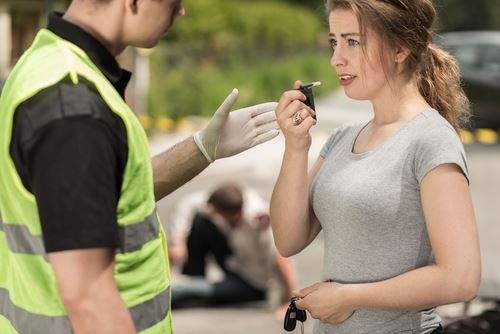If you have been pulled over for suspected drunk driving or driving under the influence of mind-altering substances, officers can conduct chemical or field sobriety tests. These tests can be used as evidence for your Driving While Intoxicated (DWI) arrest and charges. Our Austin DWI defense attorneys at Cofer & Connelly, PLLC share what you should know about refusing sobriety tests while in Texas.
What Is a Sobriety Test?
A sobriety test is a test given to individuals who authorities suspect are drunk driving. There are two main types of sobriety tests given by officers: the field test and chemical testing.
Field Sobriety Tests
Field sobriety tests are often skills tests where the individual is asked to walk in a straight line, stand on one foot, or perform other tasks that can help officers determine the sobriety of an individual. The officer may shine a flashlight in your face to test your pupil size before beginning the “walk and turn” and “one-leg stand” tests.
These tests are not perfect and can have a high margin of error. In the case of the walk and turn test, the test is 68% accurate in identifying intoxicated drivers, while the one-leg stand is 65% accurate.
Field sobriety test results can be altered by fatigue or medical conditions, rendering results unreliable. If you have a medical condition that would make it difficult to complete a field sobriety test or are fatigued, you should share this information with the officers prior to the field tests.
Chemical Tests
Chemical tests most often include breathalyzer tests, however, they can also include blood sampling or urinalysis at the police station. Chemical tests are often more reliable than field tests and are a key factor for officers charging an individual with a DWI.
The Consequences of Sobriety Test Refusal
If you refuse a field sobriety test, you will not be penalized by officers but can still be arrested if they have cause to believe you are driving while intoxicated. After refusing these tests, you do have the opportunity to take a preliminary alcohol screening test, known as a breathalyzer. The preliminary alcohol screening test is voluntary as well, but breathalyzer results are not as precise as the chemical tests done at the police station.
However, if you refuse a chemical test following your arrest, such as a breathalyzer or blood sampling, you can lose your driver’s license for 180 days to 2 years in addition to any penalties resulting from a DWI conviction. Post-arrest sobriety test refusal is an enhancement to DWI charges and may be presented in court as evidence that you knew you were driving while intoxicated.
We Can Do More
At Cofer & Connelly, PLLC, we can do more. Our skilled team of attorneys knows the ins and outs of how sobriety tests are conducted in Texas and can help you determine if they were conducted properly. With 94% of our felony cases dismissed or reduced in 2021, we will fight for your rights to ensure that your DWI stop was conducted legally.
Were you stopped for a suspected DWI and refused sobriety tests? Call our criminal defense team at (512) 991-0576 to schedule a consultation with our DWI defense team and learn more about how we can do more for your DWI charges.


